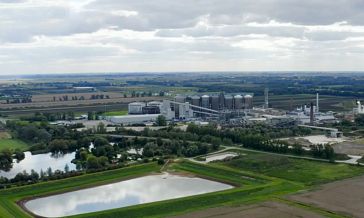
Latest news
All recent news from British Sugar
Sugar Awareness Week
27 November 2015

Let's face the facts about sugar
The role of sugar in the diet continues to dominate headlines, and with the upcoming publication of the Government’s childhood obesity strategy in the new year and Sugar Awareness Week next week; our ingredient and industry is likely to remain in the spotlight when it comes to the obesity debate.
As you would expect, I follow the debate closely and much of it appears to be based on inaccuracies and misconceptions – from suggestions that sugar is the main cause of obesity to claims that the upcoming deregulation of the European sugar sector in 2017 is likely to translate into increased sugar consumption. These inaccuracies only serve to create confusion when it comes to tackling the serious and complex nature of the UK’s obesity crisis.
Firstly, taking the obesity debate, the reality is there is no silver bullet to solving this. In fact Government data shows that in the UK, total sugars consumption has declined by 12.5% per capita since 2001, whilst obesity rates continue to rise* – underlining the complex nature of the debate. Added to this, recent research by ‘think tank’ 2020health, ‘Fat Chance? Exploring the evidence on who become obese’ revealed that obesity is a problem with multiple drivers.
It is also important to look at diet within the context of lifestyle - with a focus on overall total calories consumption – specifically considering the calories we are consuming (calories in) versus the calories our bodies use to function (calories out). This is very pertinent when you consider, firstly that sugar has four calories per gram, compared to fat which has nine and alcohol which has seven calories per gram and secondly, that today many of us lead increasingly sedentary lifestyles. So, while clearly reducing sugars can help in losing or controlling weight, singling out any specific ingredient or product will not solve such a complex issue as obesity.
Moving on to claims that European sector reforms will result in the market being flooded with sugar. Although these changes may cause depressed sugar prices in some years, sugar consumption in the UK has historically been relatively price-inelastic and therefore making the assumption that the falling price of sugar will increase consumption is misguided. In fact, in the recent past we have actually seen a 43% decline in prices while demand for sugar remains largely flat**.
We also shouldn’t forget the role sugar plays in both national and local economies. The home-grown sugar supply chain supports approximately 13,000 jobs, making it one of the country’s leading rural agricultural employers and contributing around £1 billion to the UK economy.
At British Sugar, we are committed to playing our part in helping to tackle the obesity problem which includes the Making Sense of Sugar campaign***. In addition, we want to be part of finding real and workable solutions to the obesity crisis which is why we have called for the formation of a cross-departmental taskforce to address this pressing issue. However, the starting point must be robust scientific evidence rather than the inaccuracies and misinformation currently driving the debate.
Five Sugar Myths and Facts - Infographic
Richard Pike Managing Director, British Sugar
*Government Family Food Statistics show that since 2001, consumption of total sugars has declined by 12.5 per cent per capita in the UK: Annual statistics about food and drink purchases in the UK (DEFRA): www.gov.uk/government/collections/family-food-statistics
** http://ec.europa.eu/agriculture/sugar/balance-sheets/index_en.htm
*** The Making Sense of Sugar Campaign provides people with the facts on what a balanced diet and lifestyle looks like and the role sugar can play http://makingsenseofsugar.com
Notes to editors:
Further commentary on the deregulation of the European sugar sector in 2017 can be found in the Associated British Foods 2015 Annual Report and Accounts (“The Changing World of Sugar”)(pages 22-23)
About British Sugar and the sugar industry:
The home-grown sugar supply chain supports around 13,000 jobs; making it one of the country’s leading rural employers
One of the most efficient sugar industries in Europe, and competitive with leading global cane producers
The industry operates to high standards for environmental sustainability, and practices a ‘no waste’ culture
British Sugar operates 4 factories across East Anglia and the East Midlands employing almost 1,800 permanent and contract staff.
British Sugar sources sugar beet from over 3,500 farmers, supplying our four factories with around 7 million tonnes of sugar beet.
British Sugar has invested £300 million over the last 10 years to improve efficiency and competitiveness
Each year, British Sugar produces over 1 million tonnes of sugar plus a wide range of co-products
The British Sugar site in Wissington is the largest producer of natural Betaine in the world and began production in Bioethanol in September 2007, making it the first company to manufacture Bioethanol in the UK
British Sugar uses highly efficient Combined Heat and Power technology to generate electricity and heat energy
Each year, over 700,000 MWh of electricity is exported by British Sugar to the national grid network - that’s enough to power 220,000 homes
Over the past ten years, British Sugar has recruited and trained over 100 graduates and over 90 apprentices (four year apprenticeship programme, including support to gain recognised professional qualification).
British Sugar employs apprentices, graduates and experienced professionals for roles across the business and throughout the supply chain including engineers, accountants and project managers.




